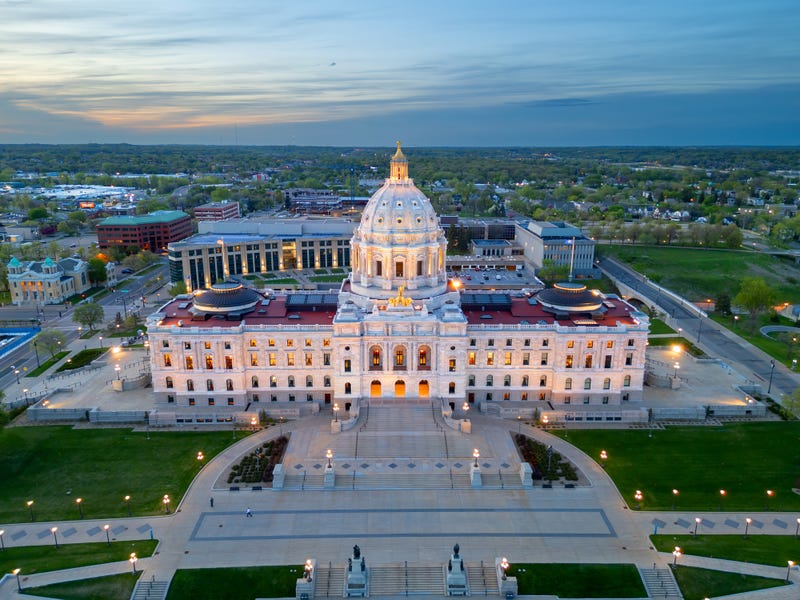
It appears Minnesota will avoid a government shutdown just weeks before funding ran out as lawmakers struggled to get a budget to the finish line. Progress had been slowed by divisions within each of the parties.
Late Friday morning, Minnesota Governor Tim Walz announced he would call a special session of the legislature for this coming Monday, June 9 at 10:00 a.m. Walz says legislative leaders finally reached an agreement.
“This bipartisan budget agreement makes thoughtful reductions in state spending while keeping us on track to make Minnesota the best state in the country to raise a child,” said Governor Walz. “It is the result of hundreds of hours of good-faith, bipartisan debate on the best ways to improve the health, safety, and wellbeing of Minnesotans. While all sides had to make concessions in order to reach a compromise, I’m grateful to our legislative partners for their collaboration and dedication to moving Minnesota forward.”
Key issues like undocumented immigrant healthcare and infrastructure spending were roadblocks as leaders continued to fight to get their members on board with what was a tentative agreement as the session closed on May 19. Those issues slowed progress down to the point where layoff notices were sent out to sectors of the government that would no longer be funding past July 1 without a budget deal.
“With this budget, legislators and the Governor are showing Minnesotans that we can work through complex, difficult issues, find common ground and act in the best interests of the state. That means protecting generational gains made for workers, schools, healthcare, care givers, kids, seniors, and parents, and taking important action in addressing our future budget challenges. We are passing a stable budget before we reach the brink of a damaging government shutdown that would have punished people living in every county of our state," said Senate Majority Leader Erin Murphy (DFL- St. Paul).
The agreement is bipartisan, with both Democrats and Republicans coming together to finalize it.
"As promised, Senate Republicans fought and continue to fight for our communities, families, businesses, and schools," said Senate Minority Leader Mark Johnson (East Grand Forks). "After drawn out negotiations we are able to announce a plan for an orderly conclusion to the session and provide certainty for Minnesotans. While Senate Republicans are not party to the overall budget agreement, we are glad to have found agreements to preserve jobs and invest in core infrastructure in our communities.”
Former Minnesota Democratic Senator Jeff Hayden told Vineeta Sawkar on the WCCO Morning News lawmakers also need to make their case to constituents.
"They haven't been able to come together," said Haydn prior to the agreement being announced. "So what you have to do is you have to figure out how do I go back to my constituency and let them know that the reason why I voted this way was because it was for the greater good?"
Analyst and former Minnesota Senate Majority Leader Amy Koch (R) said it's been a grueling time for those involved.
"I feel a lot for the leaders, for all four leaders, as I watch them try to navigate this," Koch told Vineeta Sawkar. "It is sometimes, it's just not enough money and these votes are incredibly close margins, and they are, you know, I think, doing their best. "But it is, it's a tough job."
House Speaker Lisa Demuth (R- Cold Spring) noted the difficult start to the session, with Democrats boycotting it while waiting for a power-sharing agreement to be finalized. The House dealt with a 67-67 tie this year, just the second in the state's history.
“Despite the 23-day delay to the start of session, Minnesotans expect legislators to get their work done,” said Demuth. “I look forward to finishing the state budget with the largest cut to state spending in history, important reforms to Earned Sick and Safe Time and Paid Family Leave, and other important wins for Minnesotans across the state.”
The governor had said he wouldn't call the special election until all of the details to fund the state were worked out, which it appears happened Friday. Up until then, it was unclear whether or not the votes were there to get bills passed.
